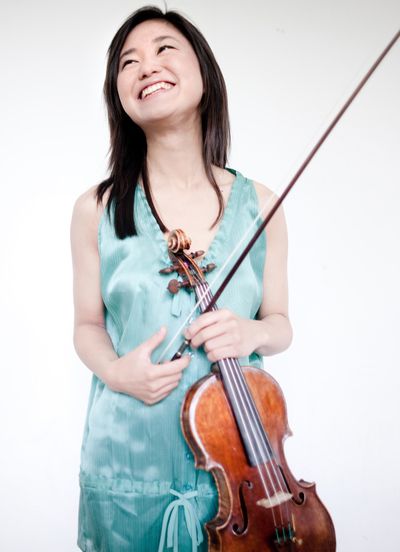Japanese violinist Shoji makes Spokane stop
Forbes named her one of most influential people in Japan

Before taking off on an extensive international tour, renowned Japanese violinist Sayaka Shoji has scheduled just two concert stops in the U.S. One was in Washington D.C. The other will be in Spokane.
Shoji, one of Japan’s premier young classical musicians, will join the Spokane Symphony and conductor Morihiko Nakahara this weekend, where she will be performing Russian composer Sergei Prokofiev’s Violin Concerto No. 2.
Born in Tokyo and raised in Siena, Italy, Shoji was surrounded by art and music from a young age, and a love of opera inspired her to pursue singing. “But I have a very low voice,” she explained during a recent phone interview, “and I was told to forget about it.”
But she was given a violin as consolation, and the connection was immediate.
“It felt more natural than the piano, which I had been playing a little bit before,” she said. “At first I couldn’t make nice sounds, but I loved it.”
In 1999, when she was only 16, Shoji won Italy’s prestigious Paganini Competition, becoming the youngest violinist to do so. That put her on the map, and in Japan, which boasts a thriving classical community, she’s a household name.
In 2012, Forbes named Shoji one of the most influential people in Japan, writing that she was “distinguished not just by the ethereal quality of her music … but also by her willingness to challenge difficult pieces and ensembles.”
Shoji said she has a long history with the Prokofiev piece, having first played it when she was 19. “I’ve played it many, many times since,” she said. “It’s one of the concertos I play regularly.”
Composed and premiered in 1935, the concerto musically illustrates a concert tour Prokofiev had taken throughout Europe, and the musical variations in each of its three movements reflect his nomadic existence at the time. The piece opens with a somber melody that recalls Russian folk music, and it closes with a flurry of strings with a Spanish inflection.
“Prokofiev is a very special composer to me,” Shoji said. “He has, of course, incredible talent as a composer, but he also creates a lot of color and magic in the music.”
In approaching her interpretation of the piece (which she recently recorded alongside Prokofiev’s first violin concerto), Shoji said she allowed the music to create a world that she can inhabit while she’s playing.
“I like Russian literature … and Russian folk stories and children’s stories,” she said. “For me, it’s very much connected to that kind of world. It’s the kind of world that makes you dream.”